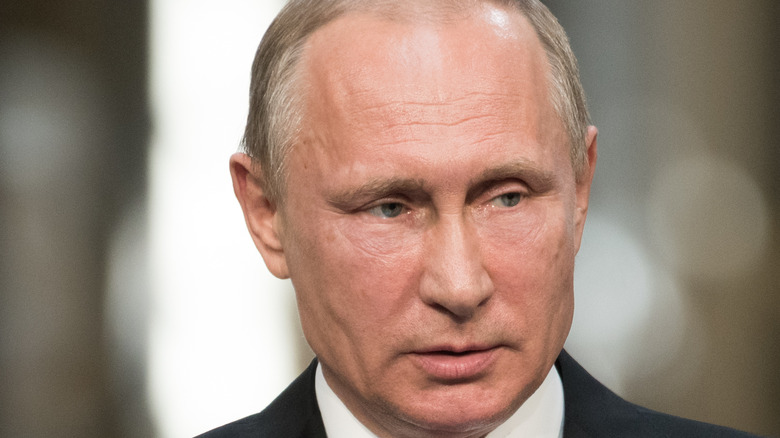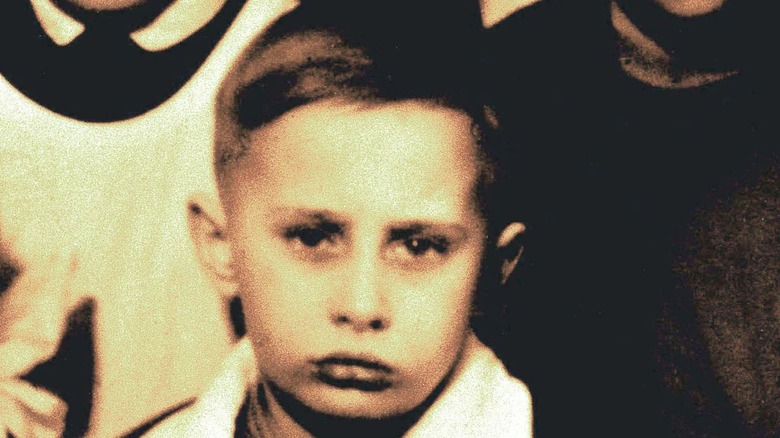We're Not Surprised By This Photo Of Putin As A Child
For over 20 years, Vladimir Putin has been in leadership in Russia, between being president as well as prime minister — it's even possible he can be president until 2036. The Russian leader ordered attacks on Ukraine in February 2022 and has been making headlines for a variety of reasons since. While we can't be certain how Russians perceive Putin's leadership choices, largely because of propagandized media and irregularities around elections, some see the recent Ukrainian invasion as proof that Putin has lost touch with the common person.
Even at the risk of jail (or worse), anti-war Russians are not keeping quiet. Hundreds of people have been arrested as dissonance grows and the Kremlin's response to that discourse becomes more significant. And, despite Putin's sharing a name with Vladimir the Great, he wasn't always part of the Russian elite, let alone part of the country's fallen monarchy. In the words of an insider who spoke to TIME before the Ukrainian invasion: "The world inside [Putin's] head is only his own." That world that he inhabits is far removed from the one he knew in childhood when Putin lived with his family in squalor.
Photos of Putin in childhood depict a stone-faced kid
When he was a child, Vladimir Putin lived in poverty with his family and was bullied at school. That might play a role in why photos that are cropping up online of a youthful Putin show a smile-less kid. Or, as one Twitter user said, "a very unhappy person." There could also be myriad reasons why Putin isn't smiling in his childhood photos which is more likely because Russians don't smile as much as Westerners do. Olga Khazan reflected on the context for The Atlantic in 2016. She asserts that not smiling doesn't mean Russians are unhappy and it's so culturally relevant there's even a Russian proverb that says, "Laughing for no reason is a sign of stupidity."
Khazan used research from psychologist Kuba Krys to explain why some cultures just don't smile as frequently. "Krys focused on a cultural phenomenon called 'uncertainty avoidance,'" she wrote. "Cultures that are low on this scale tend to have social systems — courts, health-care systems, safety nets, and so forth — that are unstable. Therefore, people there view the future as unpredictable and uncontrollable." She added that smiling shows "certainty and confidence" which is why "low-UA" countries might view constant smiling as a sign of questionable honesty or intelligence.
Russia isn't alone in being non-smiley either. Similar cultures exist in places like Indonesia, Bangladesh, Switzerland, and Hong Kong. Whatever the reason Putin isn't sporting a giant grin in his childhood photos, we aren't surprised either way.


